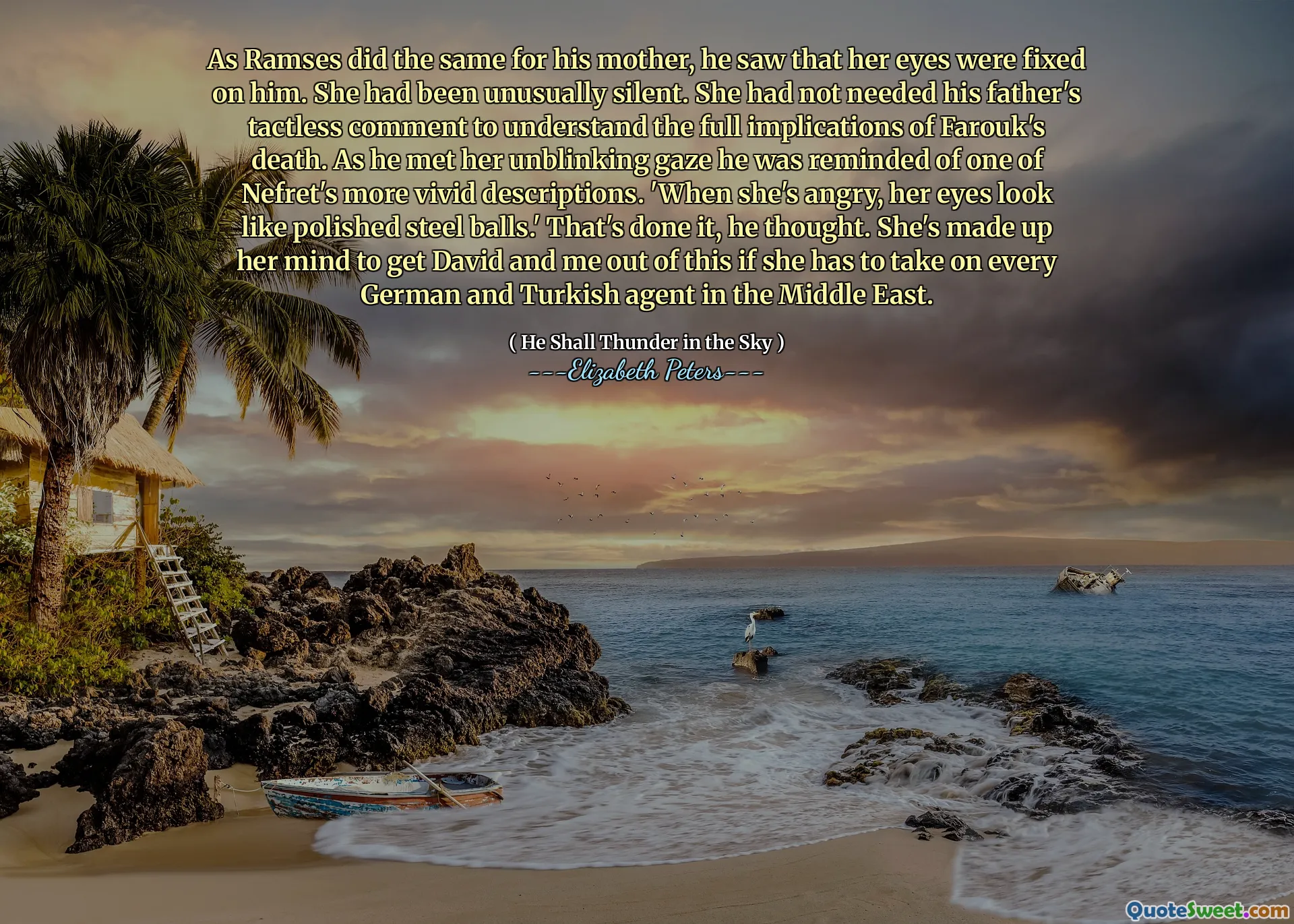
As Ramses did the same for his mother, he saw that her eyes were fixed on him. She had been unusually silent. She had not needed his father's tactless comment to understand the full implications of Farouk's death. As he met her unblinking gaze he was reminded of one of Nefret's more vivid descriptions. 'When she's angry, her eyes look like polished steel balls.' That's done it, he thought. She's made up her mind to get David and me out of this if she has to take on every German and Turkish agent in the Middle East.
This passage is a compelling illustration of family dynamics set against a tense and dangerous backdrop. The mother’s resolute gaze and silence speak volumes about her emotional state and determination without the need for explicit words. The vivid metaphor "her eyes look like polished steel balls" effectively communicates not just anger but an almost unshakeable resolve that is both intimidating and inspiring. Ramses's reflection on this sharp look shows his recognition of the strength and protective instincts that have suddenly come to the forefront. Moreover, there is an implied history of danger and intrigue, referencing German and Turkish agents, thus setting a broader context of conflict in which familial loyalty and survival intertwine. It invites readers to consider how personal courage can emerge in the face of both grief—the death of Farouk—and political peril. The quote’s strength lies in how it unites the intimate and the epic: familial concern mingled with geopolitical strife. Elizabeth Peters crafts a scene that not only reveals character but also advances the tension and stakes of the narrative, reminding us that in times of crisis the fierce protective instincts of family can lead to extraordinary courage and action.

